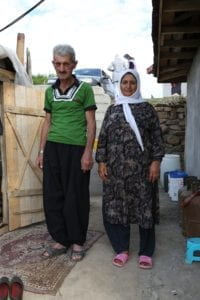Nahal Mottaghian
Tehran, Iran
In 1997, Mohammad Khatami was elected president of Iran, and he served two terms. He ran on a platform of reform. His presidency allowed for liberal changes in Iranian social life—liberal, in the context of Iran. This slight sense of social freedom was lost when Mahmoud Ahmadinejad took office in 2005.
A friend of mine was a women’s studies major during the Khatami years. The field at that time, she told me, was in stark contrast to the field today. She worked alongside internationally educated female scholars. She was involved in debates that pulled from traditions and ideals of not only the rest of the Muslim world but from the Western world as well. Today, many of her former professors have been silenced, the debates have become centered on interpretations of the Quran, and finding work has become increasingly difficult.
I asked if there is hope for moving towards full gender equality in Iran and if it is realistic to advocate for policy change. She told me that she and her colleagues had successfully advocated for changing erse, the inheritance law, which stemmed from the Quran. It deemed that when a woman passes away, her husband gets full inheritance of her property. However, when a man passes away, his wife inherits the value of the trees on his property.

To change erse, the women started by researching why it came to be. What they found was that at the time the law was written, date trees were considered extremely valuable, meaning that female widows walked away with something far more valuable than the property itself. Today, however, this does not translate: trees hold much less value than property does.
The women felt that Parliament would likely agree to change erse if they could show that this idea no longer made sense, that other Islamic nations weren’t using it, and that there were alternate Islamic interpretations of it. This is exactly what they did, and they were able to convince the members of Parliament that this law did not translate in today’s society.
And if one can change a law taken directly from the Quran, one can change laws that are based on interpretations of regulations in the Quran. It is just a matter of working from the bottom up.